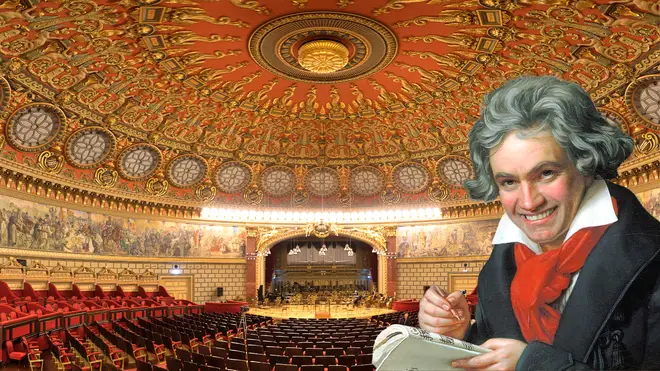The poems of Thomas Hardy are full of music...
There are many reasons to read Thomas Hardy’s poems, which I have been doing all my adult life. As with his novels, but rather more pithily, they often plunge you into the terrifying darkness of Victorian pessimism. Yet they are full of humour and irony. And for musicians and music lovers there’s an additional reason. Though Hardy’s quirky metres make his poems notoriously hard to set to music (fine cycles by Britten and Finzi notwithstanding), they are themselves full of music. And I mean that in two ways. First, Hardy depicts a musical world that still existed in his 1840s Wessex boyhood but was fast disappearing. It’s a world of viol consorts bowing ancient hymns in the west galleries of village churches; of folk fiddlers striking up reels at country fairs; and ‘waits’ carolling themselves hoarse on their Christmas Eve rounds.
Thomas Hardy: recording a vanished culture for posterity
So simply as a record of a bygone folk tradition, Hardy’s poems are invaluable. Indeed, when in ‘The Dance at the Phoenix’ he manages to cram eight dance titles (plus instructions of their steps) into seven rhyming lines, he seems to be consciously recording for posterity an already vanished culture.
But his musical references also play a fundamental role in conveying his philosophy. Like many Victorians, Hardy had lost faith, not just in the existence of God but also in humanity’s potential to behave better. One famously grim couplet in his poem ‘Christmas 1924’ – ‘After two thousand years of mass/We’ve got as far as poison gas’ – said it all.
Hardy uses music to represent decent values...
In this dark world, music could represent the enduring, decent values and customs of ordinary folk. In the lovely poem ‘A Church Romance’, for instance, he imagines a musician in a church band somehow communicating his love, through music, to a woman in the congregation: ‘One strenuous viol’s inspirer seemed to throw/A message from his string to her below.’ Woe betide anyone in Hardy’s poetic world who belittles these village folk making music to the best of their ability. In ‘The Choirmaster’s Burial’ the soulless vicar who stops the choir from playing the dead choirmaster’s favourite psalm round his grave is shaken to see an angelic choir doing the job instead. In ‘The Chapel-Organist’ a woman organist, sacked by prudish church authorities because they think she has too many male friends, shames her accusers by taking poison and expiring in front of them as she plays the final verse of her final hymn.
For Thomas Hardy, music bears witness to life's ironies and fleeting moments
Musicians in Hardy’s poetry also get glimpses into life’s ironies that others don’t. In the poem ‘Seen by the Waits’ some carol singers arrive at a house and see a woman dancing radiantly inside, all alone. Later they discover she has just heard that her ‘roving spouse’ is dead. Contrast that with another poem in which a folk fiddler, playing for dancing couples at a village shindig, observes cynically that they will ‘pay high for their prancing’ – the price not being his meagre fee, but the hasty marriages and lifelong mutual misery that will follow their incautious lovemaking.
Most often, however, Hardy makes music stand for something fleeting, unrepeatable, easily missed. ‘Everything glowed with a gleam; yet we were looking away!’ is how he ends his idyllic memory of childhood in ‘The Self-Unseeing’: his father playing the fiddle to his smiling mother; the child Hardy dancing without a care in the world.
'Music,' says Thomas Hardy, 'is the last resort for a troubled soul'
Hardy’s greatest musical poem, ‘At the Railway Station, Upway’ (brilliantly set by Britten in Winter Words) catches in a few lines his whole view of human existence. A convict, policeman and little boy are brought together by chance, waiting for a train. The boy has a violin, and when he starts to play the handcuffed convict bursts into song: ‘This life so free is the thing for me!’
Gallows humour? Self-deception? Sarcasm? It doesn’t matter. Hardy’s point here is not what people sing when they feel as hopeless as the convict. It’s the fact that they sing at all. Music, he is saying, is the last resort of the troubled soul. And he is right.
- Hardy wrote around 900 poems and there are approximately 900 days to go until 11 January 2028 – the centenary of his death. So, I’ve started reading them all again, one a day. Yes, some are bleak – but it’s amazing how much better they make you feel about your own life. And how much they dispel the still prevalent notion that Britain between Handel’s death and Elgar’s rise was a ‘land without music’. As Hardy shows us, music was always everywhere.
















